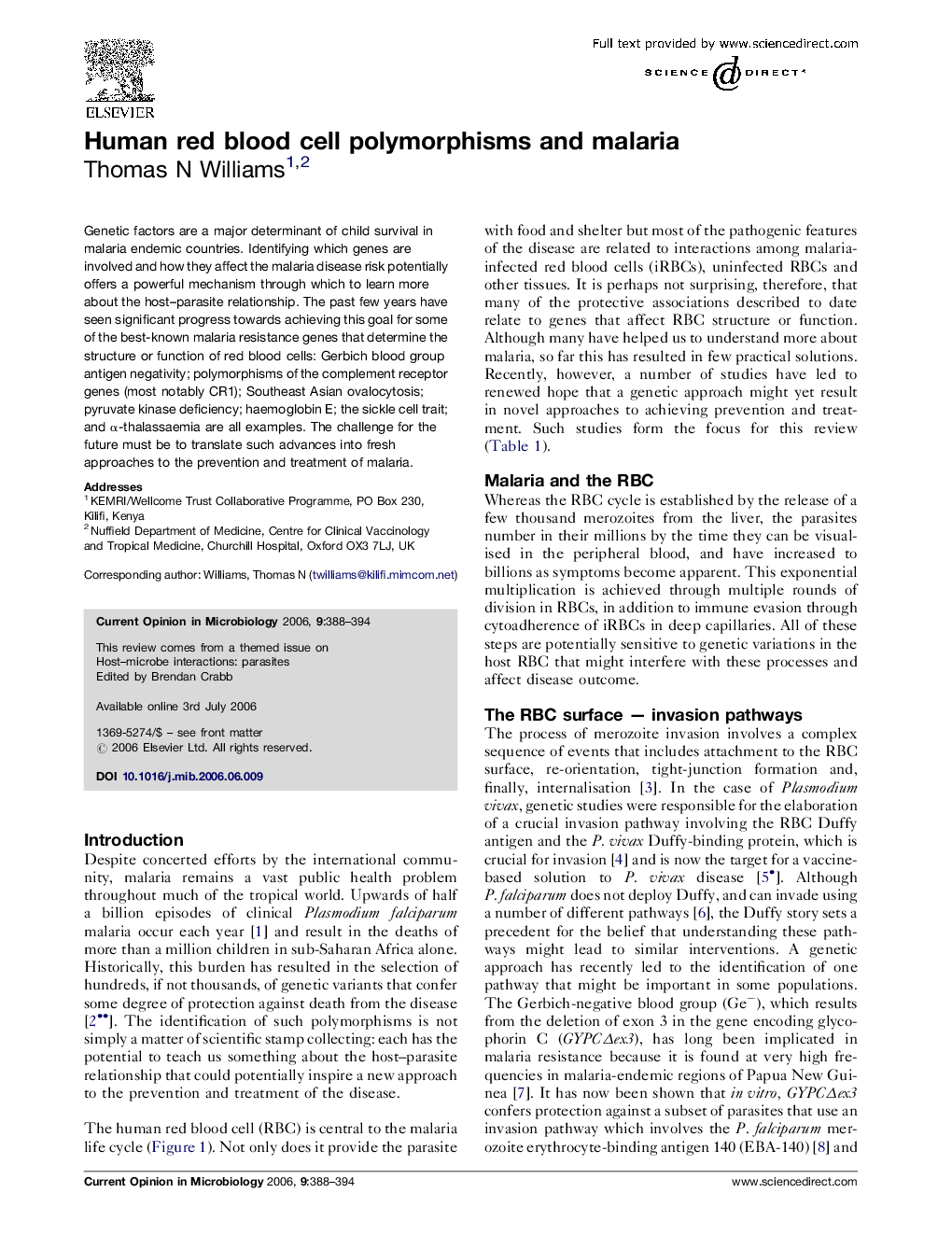| Article ID | Journal | Published Year | Pages | File Type |
|---|---|---|---|---|
| 3399719 | Current Opinion in Microbiology | 2006 | 7 Pages |
Genetic factors are a major determinant of child survival in malaria endemic countries. Identifying which genes are involved and how they affect the malaria disease risk potentially offers a powerful mechanism through which to learn more about the host–parasite relationship. The past few years have seen significant progress towards achieving this goal for some of the best-known malaria resistance genes that determine the structure or function of red blood cells: Gerbich blood group antigen negativity; polymorphisms of the complement receptor genes (most notably CR1); Southeast Asian ovalocytosis; pyruvate kinase deficiency; haemoglobin E; the sickle cell trait; and α-thalassaemia are all examples. The challenge for the future must be to translate such advances into fresh approaches to the prevention and treatment of malaria.
